Cheers to NBC4’s Wendy Rieger, the perfect best friend to the LGBTQ community
NBC4 news anchor Wendy Rieger will be honored by the GMCW with its Harmony Award next weekend.

“How do I let them know I’m cool?”
Wendy Rieger remembers posing that question as a college student, wondering if a gay nightclub in her Norfolk hometown would even let her in as a straight woman, let alone if she could ingratiate herself among the regulars upon entry. But one of her best friends, Andy, who later came out as bisexual, helped convince her to give it a shot — for the love of disco dancing.
“I thought the way to prove myself to the gays was to go out onto the dance floor and just dance with them and with Andy and not to look like a moron. So that was my ticket. It was just, ‘I’m gonna go there. I’m gonna be there every week, every Saturday night, after midnight.'”
Her early strategy for success, in other words, was to show her sincerity and determination, and to prove that she meant business — and no harm. In many respects, Rieger has followed a similar strategy ever since, in her work as a local TV celebrity, as a broadcast journalist of national stature and influence — by virtue of her 30-year career at Washington’s NBC4, where she currently anchors the News4 at 5 broadcast — and especially in her social and volunteer pursuits.
She may be the life of the party and the belle of gay galas, but in person Rieger reveals herself to be humble, genuine, frank, and down-to-earth — a breath of fresh air in a world full of self-aggrandizing poseurs and self-important prima donnas.
For one thing, Rieger isn’t entirely convinced she deserves an award from the Gay Men’s Chorus of Washington, celebrating her status as a longtime ally of the LGBTQ cause.
“I haven’t done anything,” she asserts. “I didn’t do anything except show up…. I feel like you guys let me have a front-row seat to the revolution.” Yet the 63-year-old has been no mere spectator — she’s served as host and emcee for various LGBTQ organizations over the past two decades, most notably SMYAL and GMCW. And she’s consistently put herself out there as a supporter of the LGBTQ community and an advocate for LGBTQ concerns — to a degree far greater than many of her local TV and media colleagues.
“Wendy’s been our emcee for five years, and she’s been coming to it for a lot longer than that,” says Justin Fyala, GMCW’s executive director, referring to the organization’s annual fundraiser, Spring Affair. “She’s been a great supporter of our organization, and she’s so passionate about our mission of singing for equality and justice for all people.”
Or as Rieger herself puts it about the chorus: “It’s so wonderful what they’re able to do just by singing. And the ambassadors they’ve become just by singing.”
Next Saturday, May 11, GMCW will bestow its highest honor — the Harmony Award — on Rieger. “We just felt it was time to give back to her in the most meaningful way that we could,” Fyala says. “She really uses her public persona for good. In the D.C. area, people know her right away, they trust her. She brings them the news every night. And so when she puts her name, her face, on an organization’s gala, or even on an organization, that’s her stamp of approval. And that means the world to us.”
Rieger is one of four Harmony Award recipients this year, along with the local bilingual LGBTQ community center and homeless shelter Casa Ruby, longtime GMCW donor and board member Charles Berardesco, and NBC Out, the national LGBTQ-focused offshoot of NBC News. Emmy Award-winning actress Jackie Hoffman (Feud) will serve as the “creative black tie” gala’s special guest host.
With the gala and the Harmony Award as context, Rieger recently hosted Metro Weekly at her elegant apartment in Friendship Heights. During a wide-ranging, hour-long interview, Rieger reflected on her life and career, her history of participating in and covering LGBTQ causes and events, and the impact such involvement has had. To say the least, it has gone well beyond proving that Rieger is, without a doubt, cool.

METRO WEEKLY: You’re a local gay diva, and a visible, active ally of the LGBTQ community. What prompted such activism and involvement?
WENDY RIEGER: Well, I did three AIDS Rides in a row — 1999, 2000, 2001. Patrick Bruyere — who just passed away a little more than a year ago — contacted me and said, “I don’t know that the gay community is necessarily giving back to the community. So I started Children and the Arts, where I collect books about the arts for local kids, K-12. I wanna go on stage during Reel Affirmations and make a pitch, but I need a figurehead, someone to be the chair, and I need someone from the straight community to give it credibility.” I just thought that was really [messed] up. I thought, “Why do you need a straight person? You guys are doing amazing things,” — and when I say, “guys,” I use it gender-free — “We straight people are not doing [anything] for you as far as I know. We’re busy worrying about ourselves.”
But it was reading, and my mother was an English teacher and a reading specialist. I was eight when my parents separated and divorced. Things were rough at times, and reading was a great escape for me. I would go to the library and get five books and couldn’t wait to get home from school in fifth grade and read. So I said: “If you think I can help, I’m yours, absolutely.” And that really started it.
I was also excited because now I felt like I was suddenly being given a seat at the cool kids’ table. Because what I learned during the first AIDS Ride is that this is just a group of people who are so talented and so driven, smart, and professional. When you’re riding with 2,600 people and most of them are gay, you just really see this community. So Patrick, he was sort of my all-access pass. We started doing that. We did that for a couple of years. It was great fun.
MW: I recall you being dressed to the nines at Reel Affirmations, one year sporting a sharp black leather jacket. And you effectively stole the show and became the life of the party.
RIEGER: It’s funny, I never felt more attractive or more like a woman than when I was in front of a bunch of gay men. Isn’t that weird? You guys appreciate my sexuality more than straight men do. Because straight men are always playing a game with you. And you guys are just fresh and open. I felt so safe. That was the other thing — I used to have horrible stage fright, where I would be doing everything but throwing up before I went onstage.
MW: On-air is not the same?
RIEGER: No, because a camera is an inanimate object. And you’re in a studio with a lot of lights in your eyes. And the studio’s not actually very big. When you walk into a theater or even when I give a speech in front of a bunch of people in a room, you can actually see the faces and you can hear them breathing and you can feel their presence. And that more than discombobulated me — I would have almost near-panic attacks. It was horrible. I couldn’t sleep for a couple of nights before I was supposed to get up and talk to some senior citizens at [Silver Spring’s] Riderwood Village. Everyone would destroy me. And I was married at the time, and my husband was a producer at CNN. I told him, “I’m gonna stop doing this.” And he said, “No. The only way you’re gonna get through it is if you keep doing it. So, you must do it. You gotta get in front of people so you can get over this, Wendy.”
When I walked out on stage at Reel Affirmations and you guys just laughed at my jokes and stuff, I suddenly felt very safe. Right around that time, I did my very first SMYAL luncheon, where they asked me to emcee. And the more I got up at gay events, you guys actually helped me get over my horrific stage fright. So then it became where you guys were my oxygen. I needed you guys to breathe and to live.
So when the Gay Men’s Chorus said, “Hey, we’re giving you an award, because of all you’ve done for us,” I said, “Are you kidding? I need to have a little ceremony and give you all an award for all you’ve done for me.”
MW: You’ve emceed for GMCW’s gala for several years.
RIEGER: I’ve emceed that for five years in a row. It’s been wonderful. And because I’ve gotten so comfortable, I just really let loose. I just have so much fun. People will ask: “How many drinks have you had?” And I say, “You know what’s scary? I haven’t had any.” I don’t know if that’s good or bad to admit. This is actually just me.
I’m so honored that — oh my God, you’re making me cry! I’m just so touched because, again, I think we straight people, I don’t feel like we did anything. What Craig [Cippolini of GMCW] said to me was, “We needed allies, and just the fact that you were an ally and stood with us meant a lot.” So, I feel in a way I was there for the party and I was, as someone once joked, “podium candy,” at these galas and stuff.
But you guys were the ones who had to come out to your families. You guys had to suffer the consequences of that. And I know from my friends it wasn’t always pretty. You had to suffer the rejections just by saying, “These are my basic human rights and I deserve them and I demand them.” And deal with the condemnation. We didn’t have to go through that. I feel like you guys were out in the trenches while I was back wrapping bandages or serving coffee and donuts at the USO show or whatever. So, in that sense, I’m truly blown away by it. The fact that you would think I did anything is just astonishing to me, because this has been such a fun ride for me. And it has been a no-brainer.
If anyone is denied their rights, then all of us can be denied our rights. We’ve seen in our current political climate how things can shift — and we forget that Nazi Germany was the ’30s and ’40s. That wasn’t that long ago. There’s still people alive from that. And we’ve seen since what happened in Cambodia when the Khmer Rouge came through. We saw what happened in Rwanda. We have seen the genocides. We’ve seen what happened in the Democratic Republic of Congo. The world is constantly telling us that mankind turns on itself, and there’s not a religion around today that has not at some time through history been slaughtered. So the fact that anyone would allow anyone on earth, especially in the United States, to be oppressed, or not to give them their rights, is just the dumbest thing. It’s dangerous for all of us. And especially if they start using God as a reason. Don’t even get me started on that nonsense — and I mean that. That’s nonsense, to bastardize the teachings of the prophet Jesus — and I’m not religious, but still.
So to be given this award is such an honor. I’m so appreciative. But I’m so humbled by it. I haven’t done anything. I didn’t do anything except show up. I feel like you guys let me have a front-row seat to the revolution.
MW: But you’ve shown up and helped and supported the community to a far greater degree than most of your colleagues in the broadcast business.
RIEGER: That’s true.
MW: What attracted you to working in broadcast in the first place? And to D.C.?
RIEGER: I came up here in 1978 from Norfolk and Old Dominion University to finish my schooling at American University. I was on that six-year plan, because I had dropped out to become an actor for awhile, and then decided to go back. Back in the day we were more mission-oriented. We felt like it was a calling, that you were there to tell people what they needed to know so that they could be informed citizens. And you didn’t have a lot of time to do that. So we were very selective. We were better curators, I think. And we really took it very seriously. We didn’t have a lot of folderol.
What has kept me going is that it keeps me informed. I had a Southern mother. I always say, “If my mother hadn’t been born, Tennessee Williams would have created her.” She was this fast-talking, cussing, hard-drinking — at times — really bright woman who was born ahead of her time and the era for women. My mother always said — her Maxine Manifesto was — “Pull your own weight, make your own money, and depend on no one for your happiness.” And she sort of instilled in me “You never want to be boring.” And in order to not be boring, you need to constantly be continuing to feed your intellect so that you are constantly changing and evolving. So, for me, journalism was perfect, because every day I learn several things. I was usually the dumbest person in the room when I went to a news conference, but that was fine: I needed to go in the way a viewer was gonna be coming to the story, and then I would get all the information and then retell it. And that was [gratifying], especially if you’re a storyteller.
I was in radio in the beginning, so it wasn’t about showing myself. In fact, I didn’t like the idea of someone looking at me. I thought that would dilute the process, because it’s not about me. And if you’re looking at me, then you’re gonna be saying, “Oh, her hair’s longer. Oh, her hair’s shorter. What is she wearing? Has she put on weight?” And you’re not listening to the story. I was really a purist at the time and thought I would stick to radio as opposed to TV.
MW: You not only started in radio, you started in public radio, at WAMU. Do you think that has had a lasting impact on your outlook on the news or on what you cover?
RIEGER: Maybe. The whole NPR ethic of news is, “Always assume the audience is smarter than you, and bright.” Make sure you rise to their level.
MW: Which is the opposite of what we were instructed to do in journalism school. The guidance is to dumb it down, to write at an eighth-grade level. I like the NPR way better.
RIEGER: I like it better, too. It’s more respectful. As a result, I’ve never written down to the audience. I’ve always wanted them to understand, “Why am I telling you this? Why is this important?” I wouldn’t know how to dumb it down. I really wouldn’t. You wanna tell someone a story. You wanna tell them, “This is why this is kinda cool — even in its awfulness — because it says this about us. Or it just reminds us of our basic humanity.” We’re all having a human experience, and it’s not easy. It’s not easy for any of us.
In a lot of ways, the other thing that I appreciate about gay people is that, I’m around people who had to go through a struggle. Well, we’re all individually going through our own struggles, but you had to do it being made to feel that you weren’t normal. But your struggles — all of our struggles — are normal. They’re our struggles. They’re the human struggle that we all are going through.

MW: Why can’t some people see that?
RIEGER: Because they’re stupid. That’s the other thing. For people who are ignorant, I actually feel a lot of compassion for them because something made them ignorant. Or they were not allowed to reach their full potential. And you have to feel that that’s a tragedy. That they’ve gone through life and they’re afraid — afraid to think, afraid to be independent. They haven’t been taught how to think independently. So when someone just doesn’t get it, I don’t want to condemn them, because then we’re now in this vicious, toxic cycle of condemnation and judgment. I wanna talk them through it, so that they understand.
MW: What would be an example of that?
RIEGER: Here’s something I love about gay marriage. Gay marriage taught us contract law. I got married in a Justice of the Peace. My husband was Jewish and I’m Pagan — go figure that out. And we got married at a Justice of the Peace. You don’t need God. You don’t need a Minister. It’s a commitment, but in the eyes of the law, it’s just a contract, because you don’t have to go to a church to get a divorce and God’s not gonna help you if your divorce is nasty. God’s not gonna help you divide the property and he’s not gonna help you with custody disputes or whatever. God’s not gonna help you with that. It is basic contract law.
And that’s one thing that just made me nuts about gay marriage, about people opposing it. It’s like, don’t oppose this, this is stupid. Besides — and I’m not the first person to say this — we heterosexuals have ruined marriage. We don’t know what to do with it. We don’t do it well. It’s awful. If someone actually wants to be married, let’s let them so that maybe we can be reminded of why we got married. You talk to heterosexuals who are divorced, what do they all say? “I’m never getting married again.” We don’t need it. Let’s give it to someone else. Let them have it.
That’s what makes me nuts about ignorant people. There’s enough [stuff] that’s gonna come at you that you can’t control — from cancer and diseases to the car hitting you or the plane that you’re on, that Boeing Max jet. If you’re open, you can at least control your compassion. Compassion and empathy have got to be the cornerstone and bedrock foundation for our human emotions. It has to be, because you never know when it’s gonna flip, and the crowd is gonna come after you.
MW: Is it possible to teach an old dog new tricks, though? Can you sway a close-minded person toward compassion or empathy?
RIEGER: Yes, of course! But some people are just never going to, because they just can’t. They’re just too afraid. And they don’t understand — it somehow rocks their world in some way or their feeling of safety. So then what you wanna do is make sure that they do no harm. You can do plenty of harm, as we’ve seen, in the voting booth. But you just hope that they do no harm.
I’ve got a story to tell you. It was in the early ’90s — ’92? — where I had a confrontation with some people in the gay community at Dupont Circle that really shook me. And it was a time when the gay pride parade was coming up, and for many years it was very burlesque. It was a lot of scantily clad guys with long balloons between their legs, and it was very risque and crazy. And this was as the gay community was pushing for political rights and was really becoming more politicized. And of course you had the AIDS crisis, which was exploding. And political leaders in the gay community were starting to say, “We’ve really gotta change our public perception.” We had a discussion at Channel 4 [and decided that] we were now no longer gonna video those floats. We were gonna focus on messages.
So they sent me out Friday evening when everybody was coming in for Pride. I was at Amtrak waiting for people [but] a lot of the trains from New York hadn’t come in just yet. So I went to Dupont Circle, and there were a whole bunch of people with brochures out at the Metro’s north entrance. And everyone looked regular, there was no one outlandish-looking except this one guy who had a Mohawk painted in the rainbow colors. So I walk up to the people manning the other tables with pamphlets and stuff to see if they would want to be interviewed, and no one did: “No, I’m just here hanging out. I don’t wanna be interviewed.” And I thought, “Okay.”
So this guy came up to me from his booth, the guy with the mohawk. He was a lovely man, and he goes, “I’ll talk to you.” And I actually [hesitated]: “We’re trying not to do this. I’m trying to be a friend of Pride with a different message. We had the talk in the newsroom and we’re trying….” I just had one of those awkward moments where I said, “Okay,” but I was uncomfortable. But the poor man — this was his self-expression. So it was interesting, because even I was now prejudiced against him because of the gay political leaders had made me prejudiced against this guy.
I started talking to him, and out of nowhere, this lesbian and a couple of other people came up and started heckling me. They started going, “Oh, you people in the media. Really? You’re interviewing him? That’s all you guys care about is the flamboyant people among us. You don’t wanna hear that we’re not all the same. We all don’t look like that, but that’s the stereotype you keep pushing.”
Suddenly there’s a crowd around us, and I just said, “Wait, do you know me?” And she kinda stopped. I said, “Do you know anything about me? Have you ever seen my work?” And I wasn’t an anchor then. I was still just a fill-in anchor. “Why are you prejudging me? This man is manning one of the booths here. Do you want me to say no to him? Because of his hair? You don’t know me. Why don’t you wait and see the report I do tonight. And if you don’t like it, then you can call me and chew me out. But right now you are stereotyping me in the same way you are asking people not to stereotype you. I’m not just someone in the media. I am an individual. And I work at Channel 4 News and my name is Wendy Rieger and if you don’t like what you see at 11 o’clock tonight, then you can chew me out.”
She said, “You know, you’re right.” Then I stormed off. I just left my cameraman [Harry] and I just stormed off.
MW: Did you finish the interview with the guy?
RIEGER: No! I asked him one question when they, the mob, appeared. As I was waiting to cross the street, some woman who was about to cross too, she looked at me and said, “You didn’t deserve that.” And I said, “Well, I know they’re mad, and I know they’re trying to change their message. But people are still gonna wanna be who they are. And isn’t that a message as well? Can’t he be included?”
MW: How did your piece turn out?
RIEGER: Well, then I was even more emboldened. Harry caught up with me, we got in the car and we went to Union Station. And I asked him, “By the way, did you roll on that?” He said, “No. I turned off the camera because I didn’t think you wanted people yelling at you.” And I said, “Ahhh! Roll on everything. If I’m being hit by a bus, roll on it! Don’t even save me. Just take pictures of it.”
So that became my story. I referenced that I was just in Dupont Circle and people got all up in my business because I was interviewing some guy with a rainbow mohawk. And everyone wanted to talk about that. It was a real sea change in the politics of Pride. That was the first time I felt like I’d come through the fire. I had this angry lesbian yelling at me, and I really felt like that’s when things clicked with me in the gay community as a reporter. Because I thought, “I am here to tell your story.” I’m here to tell everyone’s story, but I think that night I got this story right.
MW: Was that the first gay event you covered?
RIEGER: That’s the one that stands out because it was just so, oh my God. I wanted to start crying. “Don’t yell at me.”
MW: And subsequent to that, as your and others’ reporting on the gay community and gay issues evolved and improved, the public’s perceptions also evolved and improved.
RIEGER: Sure. And I don’t think that was just Channel 4. I think everyone. All you have to do is ask us. I mean, we all need to be educated. And I think the political leaders in the gay community were smart. They went to the local TV stations and they said, “Could you do us a favor? These are the issues we’re trying to get out. Could you please tell this story and not just make us look like a bunch of clowns.”
MW: It surely helped that there were a lot of LGBTQ people working either in journalism or in the communications field generally.
RIEGER: Right, and you had more [LGBTQ] publications coming out at the time.
MW: What does the future hold for you?
RIEGER: I actually see myself probably retiring from television in the next couple of years and going back into radio — which is now called podcasting. There are so many interesting people I’d like to talk to without the burden of trying to match video to it. I’d like to be able to sit down and have a conversation with interesting people, whether it’s 15 minutes, or 30 minutes, or an hour, and let’s chop it off and throw it up to a podcasting site and [people] can download it whenever they want. That’s what I’d like to do.
I also wanna go live in the country. I wanna go live in Rappahannock County — where I’m [currently] building a house — full-time, and I want to see what life is like without hair and makeup.
MW: Back to the present, though, I wanted to ask whether the charge of “fake news” has had any impact on your newsroom or on your work in any way.
RIEGER: No, it really hasn’t because we’re local news and people trust us. When they come home and there’s yellow police tape around their neighbor’s house, they’re not gonna go to the New York Times or to Fox News, they’re gonna come to us. And we’re gonna tell them what’s going on in the street where they live. We tell them what’s going on with the nuts and bolts of their lives. And so it hasn’t impacted us.
Plus, I think it became such a cliché. It’s been two years. We got over it. I think it was a great dog whistle for people who wanna hate. And that’s Trump, and you know what? I think he’s brilliant in the way he is communicating. I don’t think it’s good for us as a country, but I think he’s brilliant and I think it’s frightening. I have friends in the business who just dismiss him. Don’t dismiss this man. He’s masterful. But it’s been two years and I think it’s starting to wane a little bit. And I think people are just getting exhausted by his nonsense. I hope they are. Because I think we are better than this.
Going back to what I said earlier, if someone doesn’t have rights, we all cannot have rights because look what’s happened in the last two years with just the hatred. It doesn’t take much. We need to support everyone. If someone doesn’t have their civil and their human rights, fight for them!
The GMCW Spring Affair: Legends of Olympus is on Saturday, May 11, with a cocktail reception at 6:30 p.m., and a three-course dinner at 8 p.m., at The Ritz-Carlton, 1150 22nd St. NW. Tickets are $225 per person. Call 202-293-1548 or visit www.gmcw.org.
Follow Wendy Rieger on Twitter at @NBCWendy.
Support Metro Weekly’s Journalism
These are challenging times for news organizations. And yet it’s crucial we stay active and provide vital resources and information to both our local readers and the world. So won’t you please take a moment and consider supporting Metro Weekly with a membership? For as little as $5 a month, you can help ensure Metro Weekly magazine and MetroWeekly.com remain free, viable resources as we provide the best, most diverse, culturally-resonant LGBTQ coverage in both the D.C. region and around the world. Memberships come with exclusive perks and discounts, your own personal digital delivery of each week’s magazine (and an archive), access to our Member's Lounge when it launches this fall, and exclusive members-only items like Metro Weekly Membership Mugs and Tote Bags! Check out all our membership levels here and please join us today!




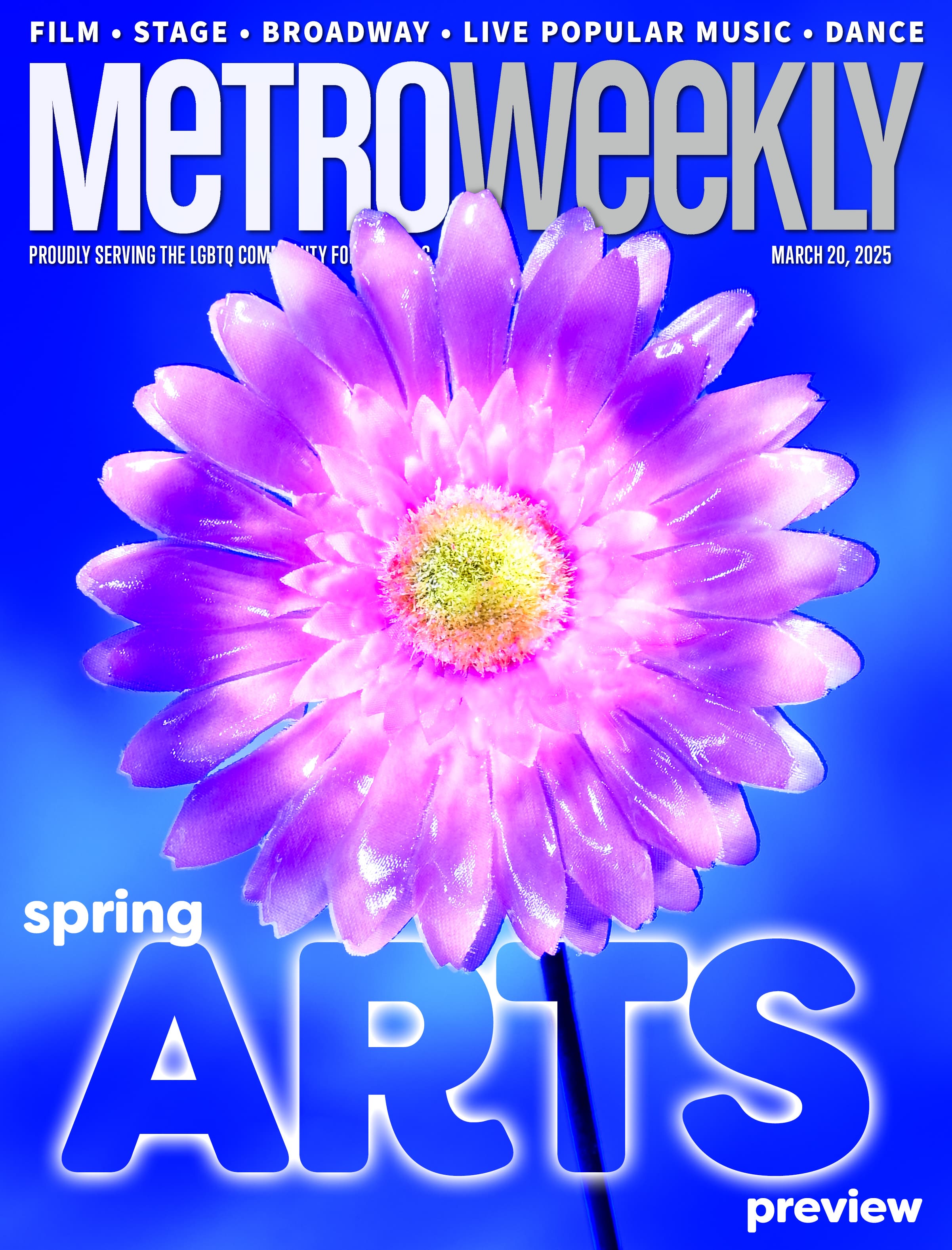
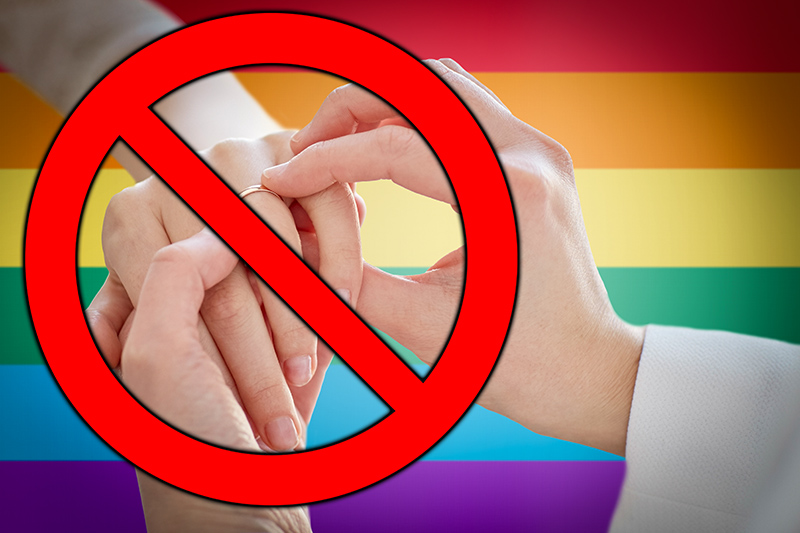















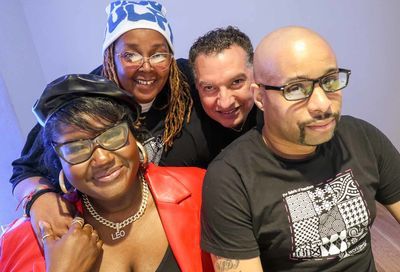
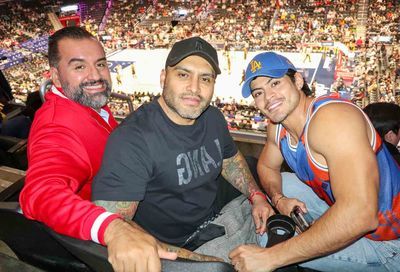
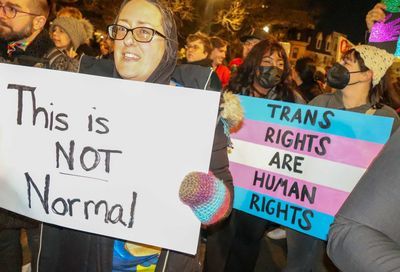
You must be logged in to post a comment.